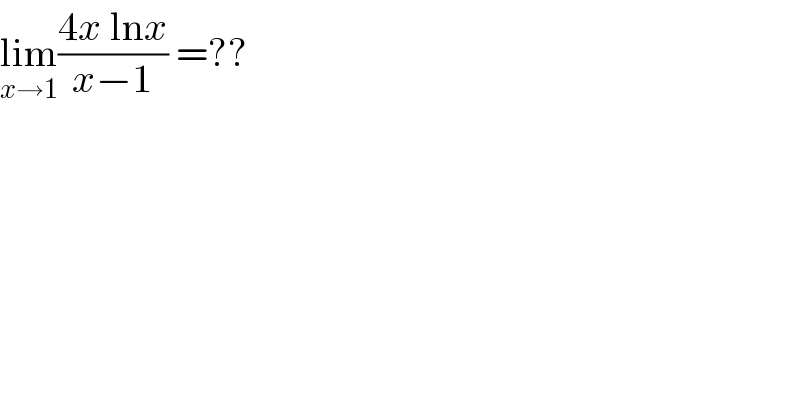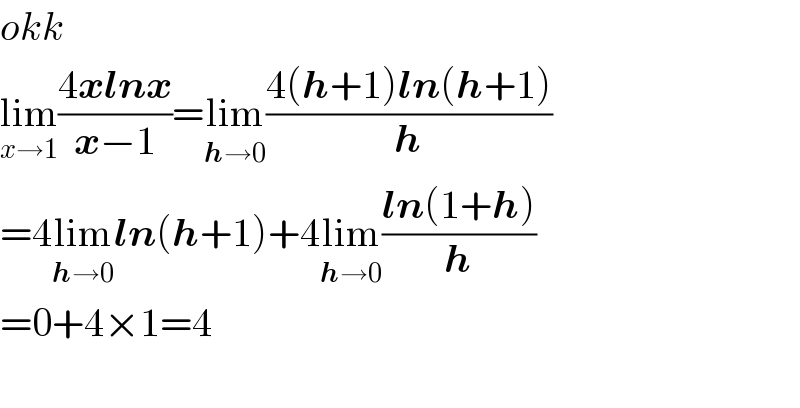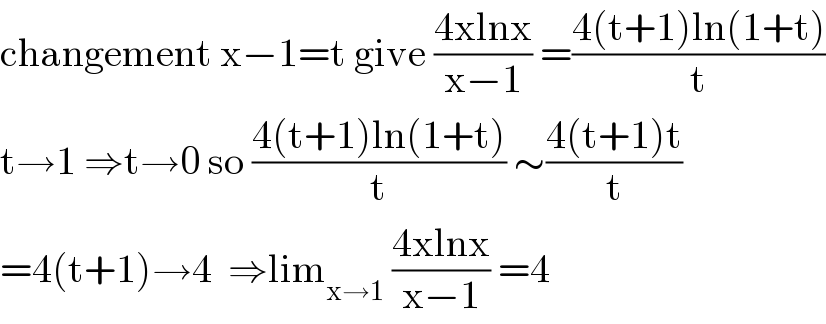
Question and Answers Forum
Question Number 97577 by Rio Michael last updated on 08/Jun/20

Commented by Dwaipayan Shikari last updated on 23/Jun/20

Answered by smridha last updated on 08/Jun/20
![(0/0)form using L′Ho^� pital rule 4lim_(x→1) (([1+ln(x)])/1)=4](Q97579.png)
Commented by Rio Michael last updated on 08/Jun/20

Commented by smridha last updated on 08/Jun/20

Commented by Rio Michael last updated on 08/Jun/20

Answered by abdomathmax last updated on 08/Jun/20

